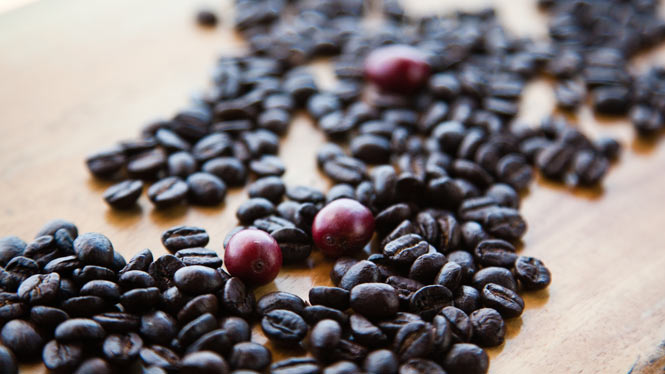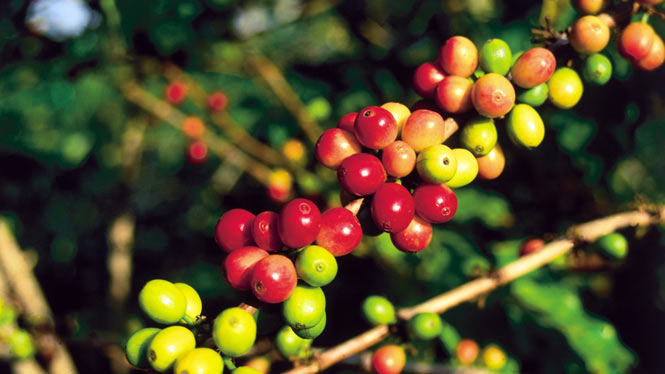
As the sixth-largest diversified agricultural crop in the state, it’s also big business. There are currently 580 coffee farmers working 6,800 acres on five islands across the state, contributing $10.4 million in annual revenues to Island coffers. What’s more, some experts predict that Hawai’i can double its four-million-pound annual yield within the next ten years.
Attention, coffee addicts: You’ll get your fix in Hawai’i. From locally grown to imported exotic varieties, the aroma of fresh-brewed java permeates the air everywhere you go in the Aloha State.
The Island of Kaua’i leads the state with 4,000 acres in production. The Big Island ranks second with 1,800 acres, and Moloka’i is third with 550 acres. The islands of Maui and O’ahu produce the remainder.
Kona Coffee
The most famous Island-grown coffee, if not the most abundant, is Kona coffee, grown on the southwest side of the Big Island. Kona is the only place in the United States where coffee has been grown commercially for more than 100 years. The “Kona Coffee Belt” extends to the upland slopes of Mauna Loa and Mount Hualalai. Today, Kona coffee ranks among the most elite and sought-after coffee in the world.

The first coffee plants were brought to the Islands in 1828 by the Reverend Samuel Ruggles, an American missionary. The plants flourished in the favorable soil and climate conditions of the Big Island. As the years passed, Japanese immigrants brought in as contract laborers for the sugar companies served out their contracts and started small, family-run coffee farms.
The hard-working Japanese farmers eventually owned their own land, and their children worked the fields with them. One old-timer remembers picking 400 pounds of coffee beans per day when he was a child. Today, the term “Kona character” has come to mean rugged individualism and a “can-do” attitude. Of the 500 Kona coffee farmers remaining, some are able to produce 1,000 pounds of processed coffee on two acres of land.
The coffees of Hawai’i and the world are brewed in dozens of cafes, coffee carts and gourmet restaurants around the islands. And of course, getting your hands on some of Hawaii’s finest-tasting coffees are just a few clicks on the Internet away.
When it comes to Hawaiian coffees, something good is always brewing!
